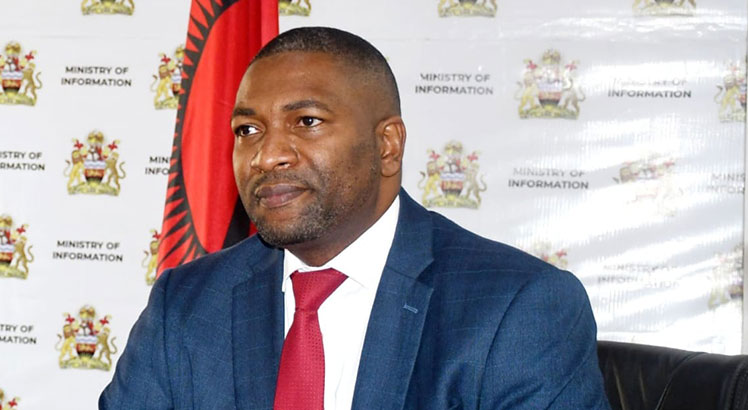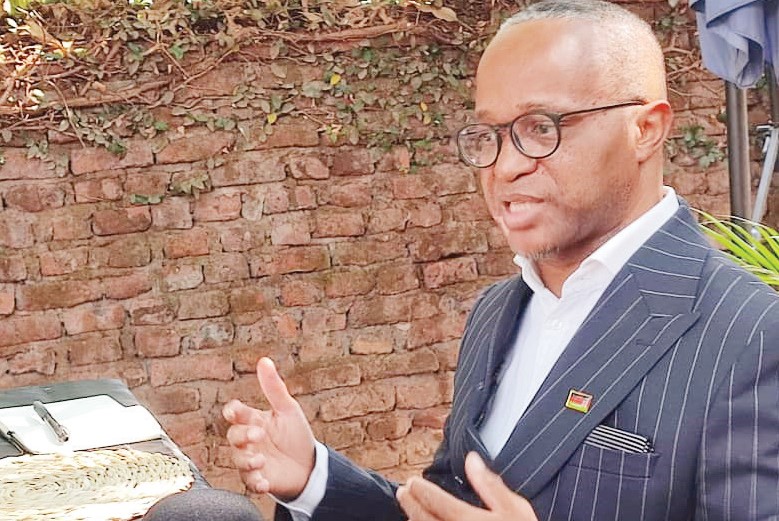Ministry of Agriculture has missed its own deadline of September 1 to start the distribution of fertiliser and other inputs under the taxpayer-funded Affordable Inputs Programme (AIP) to benefit economically vulnerable smallholder farmers.
Minister of Agriculture Sam Kawale, who in May this year announced September 1 2023 as the commencement date for the distribution, said prevailing foreign exchange challenges have derailed the plan.
Kawale: We will expedite distribution
In a written response on Wednesday, he said shortage of forex remained a major concern, but hoped that the distribution exercise will still commence before the onset of the rains, buoyed by a $100 million (about K103 billion) foreign exchange lifeline for fertiliser Ecobank Malawi Limited has given private suppliers.
Said Kawale: “The availability of forex by Ecobank, and hopefully other banks will come in soon, will assist in having the programme roll out on time. We will make sure that we expedite the distribution so that we still finish before the rains come.”
On how much fertiliser is currently available in the country, he said he was yet to get details.
“Most of the stocks are with suppliers and on a daily basis, there are some stocks arriving in the country. It remains our prayer that distribution will be done before the rains, to take advantage of improved road conditions,” he stated.
Phiri: Forex remains a challenge
Earlier this year, government hired 13 private firms to supply fertiliser under the AIP in a restricted tender which Kawale justified as necessary to speed up the implementation of the programme.
The minister said the 13 companies were expected to supply 149 164 metric tonnes (MT) of fertiliser for the 2023/24 AIP season.
He said the companies already had about 80 000MT of fertiliser in the country, representing about 53 percent of the quantities of both NPK and Urea needed under the programme.
But speaking in Nkhata Bay on behalf of Kawale during the commissioning of Linga Irrigation Scheme two weeks ago, Minister of Transport and Public Works Jacob Hara claimed that all was set for the AIP inputs distribution.
“We have it in the country, and we would have wanted even to start distributing. But we are afraid that if we do that now, some people will end up selling the inputs,” he said.
Meanwhile, industry players indicate that there is a combined 326 712MT of fertiliser at Mozambique’s Indian Ocean ports of Beira and Nacala, but delivery to Malawi was dependent on the companies sourcing foreign exchange. Beira has 137 562MT and Nacala 189 150MT.
Fertiliser Association of Malawi said the country uses between 400 000 and 500 000MT of fertiliser annually, as such, any drop in supply will have a bearing on food production.
In an interview on Wednesday, the association’s executive administrator Mbawaka Phiri confirmed that the forex shortage is still a challenge as their members are struggling to import fertiliser, most of which is at the port in Mozambique.
She said they were yet to be informed about the Ecobank facility.
Said Phiri: “From our membership, forex remains the challenge, otherwise if this was provided, we would be able to meet the demand/target, especially for those members that have been contracted in this year’s AIP.”
On Tuesday this week, Minister of Finance and Economic Affairs Sosten Gwengwe commended Ecobank Malawi for extending this financial facility, saying it would allow local suppliers with a tender to supply fertiliser under the AIP to secure the forex they need to import fertiliser.
Letters of credit allow exporters to get a guarantee of payment while offering the importer reasonable payment terms.
In the 2022/23 growing season, the AIP programme was marred by procurement challenges after government, through the Smallholder Farmers Fertiliser Revolving Fund of Malawi, signed a contract with a dubious foreign company dealing in oil and fish products to supply fertiliser.
The delays, coupled with impacts of Cyclone Freddy which hit most parts of the Southern Region, affected maize yields for most farmers.
This year, government has said it is targeting between 1.3 million to 1.5 million beneficiary households for AIP, which has been allocated K109 billion, down from K117 billion last year.
The number of AIP beneficiaries has been going down from the initial 3.7 million in the 2020/21 season to 2.5 million in the 2022/23 season due to budget cuts.
Meanwhile, the projected cut to about 1.5 million beneficiaries has worried the Farmers Union of Malawi (FUM) and other agriculture experts who fear the decision will leave out another 1.5 million smallholder farmers.
FUM president Maness Nkhata said considering that most farmers received fertiliser late in the 2022/23 season, which affected their maize yields, the farmers that will be left out from AIP this year will not be able to buy fertiliser at commercial price as most of them are poor and food- insecure.
Ministry of Agriculture projected the distribution to start on September 1 and end on November 30 2023.
The post Govt misses AIP deadline appeared first on The Nation Online.
 Moni Malawi
Moni Malawi 

